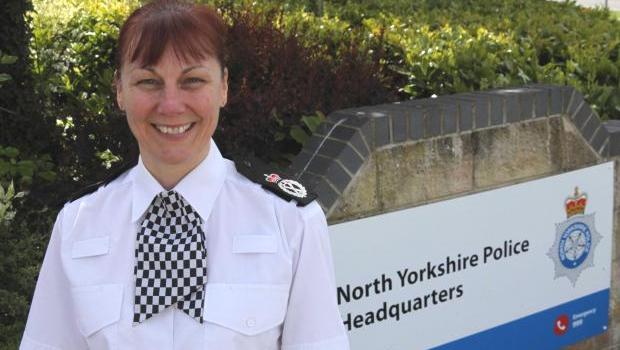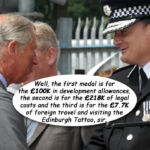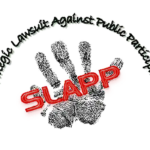The Big Business Connection
by TIM HICKS
~~~~~
Introduction
In 2009 it emerged that MI5, Special Branch and the Industrial Intelligence Section of the notorious Special Demonstrations Squad had infiltrated trade unions. Undercover police officers had provided information and intelligence on trade unionists, environmental activists, shop stewards and health and safety representatives to a shadowy private organisation called “The Consulting Association” (TCA). This in turn was passed on to employers by TCA and was used to blacklist workers from employment.
In 2009, TCA’s office was raided by the Information Commissioner’s Office, which served an enforcement notice against it under the terms of the Data Protection Act 1998.
In October 2013, the Independent Police Complaints Commission (IPCC) (now the Independent Office of Police Conduct or IOPC) confirmed that the police had colluded in the blacklist, saying it was “likely that all special branches were involved in providing information” to the list. This of course means that North Yorkshire Police Special Branch (known in NYP as “Ports Branch”) also probably conducted these operations in breach of the Data Protection Act. Clearly a flagrant misuse of police powers.
Full story can be read in Wikipedia here
Independent article here
BBC article here
Daily Mail article here
The NYE has run a series of articles on undercover policing and they can be read below:
- The first covered the influence of the military on armed and undercover police operations and can be read here.
- The second covered the influence of the military on police information warfare operations and can be read here.
- The third covered information warfare operations by Local Government Organisations and can be read here.
- The fourth covered information warfare operations by public bodies, in this case North Yorkshire Police (NYP) and the Office of Police and Crime Commissioner for North Yorkshire (OPCCNY) and can be read here.
- The fifth covered information warfare operations by Special Branch and can be read here.
- The sixth covered misuse of surveillance powers by local Councils and the Police and can be read here.

Demonstration outside the Royal Courts of Justice by men who claim they were
blacklisted from employment as a result of police cooperation with employers.
The ethical position of the police service
If it is to retain the confidence of the public, the British Police Service must remain independent of all commercial and political influences. This is an accepted principle of policing in Britain.
Many forces have this enshrined in force policy. This Gloucestershire Police policy is typical:
“Restrictions on the Private Life of a Police Officer
Members must abstain from any activity which is likely to interfere with the impartial discharge of duty or likely to give rise to the impression that the activity may do so. Police officers are also required not to take any active part in politics.”
North Yorkshire Police does not have a specific policy, but has instead adopted the College of Policing Code of Ethics. “The Code of Ethics has been produced by the College of Policing in its role as the professional body for policing. It sets and defines the exemplary standards of behaviour for everyone who works in policing.”
The Code of Ethics is also commendably clear on the subject of impartiality:
Honesty and Integrity
1.1. According to this standard you must:
-
- act with honesty and integrity at all times
- act with honesty and integrity at all times
-
- use your position, police identification or warrant card for policing purposes only, and not to gain a personal advantage that could give the impression you are abusing your position.
- use your position, police identification or warrant card for policing purposes only, and not to gain a personal advantage that could give the impression you are abusing your position.
1.2. In abiding by this standard you gain and maintain the trust of the public, your leaders, your colleagues and your team. You are dependable and a role model.
1.3. The more senior in rank, grade or role you are, the greater the potential for harm as a consequence of any misuse of your position or any failure to meet the standards required by the Code of Ethics
Examples of meeting this standard are when you:
-
-
- ensure your decisions are not influenced by improper considerations of personal gain
-
-
-
- neither solicit nor accept the offer of any gift, gratuity or hospitality that could compromise your impartiality
- neither solicit nor accept the offer of any gift, gratuity or hospitality that could compromise your impartiality
-
-
-
- do not use your position to inappropriately coerce any person or to settle personal grievances.
- do not use your position to inappropriately coerce any person or to settle personal grievances.
-
Associations
6.3. Membership of groups or societies, or associations with groups or individuals, must not create an actual or apparent conflict of interest with police work and responsibilities.
6.4. The test is whether a reasonably informed member of the public might reasonably believe that your membership or association could adversely affect your ability to discharge your policing duties effectively and impartially.
The Chief Constable’s membership of the FBINAA
The Chief Constable of North Yorkshire Police (NYP) Lisa Winward is a graduate of the FBI National Academy (FBINA) in Quantico Virginia, which she attended as a foreign student in 2011. This is a prestigious course to attend, places on it are highly competitive. She was selected for attendance from many applicants. It is clear that she did very well to obtain a place and to pass this course. Her attendance marked her out as a high flyer within NYP, probably leading to her accelerated promotion to Chief Constable and beyond.
Attendance at the FBINA also entitles her to be a member of the FBINA Alumni, which is called that FBINA Association (FBINAA).
Each year the FBINAA runs an annual conference at a City in Europe. Usually one of cultural significance that is a popular tourist destination. The NYE has run a series of articles on Chief Officers expenses generally and Chief Constable Lisa Winward’s tax payer funded visits to her FBINAA conferences at various locations in Europe:
This has been covered in the following NYE articles:
- The Helsinki Connection revealed that Chief Constable Winward had attended a taxpayer funded weekend FBI NAA conference in the lovely city of Helsinki.
- Open letter to Police, Fire & Crime Commissioner Julia Mulligan (Still remains unanswered).
- The Bulgarian Connection revealed that these conferences are an annual event and she has been attending them for some time. Possibly since 2011.
- The Dresden Connection revealed that Chief Constable Winward had attended a taxpayer funded weekend FBI NAA conference in the beautiful and historic city of Dresden.
The FBINAA
According to the Wikipedia definition:
An alumnus, alumna, or alumnum is a former student and most often a graduate of an educational institution (school, college, university). Alumni reunions are popular events at many institutions. They are usually organized by alumni associations and are often social occasions for fundraising. The term is used almost exclusively in the USA.
Here I quote from the FBINAA website:
“Message from the Executive Director
Thank you for your interest in the FBI National Academy Associates. Our corporate and alliance sponsors provide us the opportunity to continue to provide the training, networking, and professional development opportunities for our members that reflect the FBI’s ten-week National Academy Program. As a sponsor, you’ll help us to enhance the knowledge and professionalism of law enforcement personnel throughout the world. We view our corporate sponsors as more than financial contributors or vendors. We hope they will consider themselves as family and the relationship to be an alliance. We make every effort to foster a relationship that exposes your organization to us and our members to your organization.
The FBINAA is built on the foundation of knowledge, courage, and integrity. We believe we have much to offer one another. Please consider the information contained in the Strategic Alliance Program as a basis from which to work to create a dynamic and interactive relationship between your organization, the FBI National Academy Associates, and its 17,000+ members, in its 48 chapters, world-wide.
Sincerely,
Howard Cook,
Executive Director,FBINAA, INC
For information regarding International Sponsorship opportunities, please contact Greg Guiton, Director of Strategic Partnerships and Advertising at gguiton@fbinaa.org or (443) 614-3718.”
The implication being that the FBI NAA actively solicits funding from big business commercial organisations that makes them “more than financial contributors or vendors” to foster a “relationship to be an alliance” which gives them privileged exposure to the FBINAA members like Chief Constable Winward.
Further, the sponsorship from commercial organisations is passed on to FBINAA members in the form of subsidised corporate events like the FBINAA conferences in Helsinki and Dresden. So FBINAA members obtain a personal financial gain from the FBINAAs “alliance” with commercial organisations.
This FBINAA appeal for sponsors for the 2016 conference in Dresden, which Chief Constable Winward attended is explicit that it is offering privileged access to Chief Police Officers in return for money:
“We invite your organization to participate in the 34th Annual FBI National Academy Associates European Chapter Training Conference September 24-28, 2016 in Dresden, Germany and network with key senior law enforcement executives from across Europe. Your involvement as a sponsor will give you access to influential professionals from law enforcement agencies across the region. This conference attracts over 250 FBINAA graduate delegates across Europe, the majority serving in senior positions within police departments, justice ministries, security services, border agencies and other relevant law enforcement organizations. Please visit the conference website for more information at www.fbinaa-dresden2016.com.”
For some examples of the FBINAA’s sponsors click here.
For the benefits of being a sponsor click here. These include:
- Use of the FBINAA logo for commercial purposes.
- Corporate Partner Liaison Services to enhance access to FBINAA Members like Chief Constable Winward.
- Advertising to FBINAA members.
- Being keynote speakers at the FBINAA conferences, like the ones that Chief Constable Winward attends.
- Access to the newsletter sent to all FBINAA members.
So what is the problem?
The FBINAA is an American organisation and its operation appears to me to be incompatible with the way impartial policing in Britain operates.
There are two general ethical issues for any police officer with being a member of the FBINAA, because of its sponsorship activities. These are:
- Given the above history of abuse of police powers when the police were allied with employers and used undercover police to break the law on behalf of big businesses. It is now unacceptable for any British Police officer to join an organisation that is in open “alliance” with any business, industry sector or lobbying group. Police officers being members of private secretive organisations that are connected to big business is a conflict of interest and therefore contrary to Section 6.3 of the Code of Ethics quoted above.
- The FBI NAA takes money from businesses and this is returned to its members, in the form of subsidised conference fees and newsletters. This leaves members open to an allegation of accepting hospitality that could compromise, or be perceived to compromise his or her impartiality. Accepting hospitality that is funded in part or in whole by big business is contrary to the standards of honesty and integrity specified in Section 1 of the Code of Ethics quoted above.
The police sometimes have to police industrial disputes, complaints against security guards and environmental protests against commercial organisations. Some examples from North Yorkshire are below:
- Guardian article on fracking protests at Kirby Misperton
- Yorkshire Post article on protests at the Drax power station near Selby.

North Yorkshire Police clearing fracking demonstrators from the road at Kirby Misperton
This video shows protestors asserting (wrongly in my opinion) that North Yorkshire Police (NYP) are acting on behalf of a commercial company, at a protest. Unfortunately, allegations of this nature are given credence because:
- The Chief Constable is a member of a private, secretive organisation with restricted membership that openly states it is in “alliance” with businesses in the security industry.
- According to the FBINAA, executives of global commercial companies have direct privileged access to Chief Constable Winward through the FBINAA. It is possible that energy companies are also sponsors of the FBINAA having similar privileged direct access, giving rise to an even more sensitive conflict of interest.
- Chief Constable Winward is receiving subsidised hospitality from commercial organisations, which may include security and energy companies.
- Part of the networking activity with businesses that are present at FBINAA events is to secure employment opportunities for police officers after retirement. Potentially giving rise to a conflict of interest if for instance a Chief Police Officer has a recruitment discussion at an FBINAA event with a FBINAA sponsor that is an organisation in the security industry.
This undermines the credibility and the public perception of North Yorkshire Police’s impartiality. It also puts the Chief Constable in breach of Sections 1.1, 6.3 and 6.4 of the Code of Ethics.
This in turn it puts her in breach of Section 1.3 of the Code of Ethics for failing to set the appropriate example, for someone of her rank and seniority.
I am not in any way suggesting that Chief Constable Winward has allowed herself to be the subject of undue influence by one of the FBINAA’s sponsors. That is not the issue. As the Gloucestershire Police Force Policy and the Code of Ethics both point out. The issues are of perception and the impression membership of an organisation can give, coupled with the requirement for senior police officers to set the correct example and perfectly comply with the Code of Ethics.
So what is the solution?
It seems to me that having had these concerns pointed out to her, the best thing would be if Chief Constable Winward resigned from the FBINAA.
Chief Constable Winward has received an initial draft of this article and chose not to comment. So it appears that she does not reject these concerns and is happy to continue her membership of the FBINAA, despite the obvious conflicts of interest this entails.
Clearly this is unsatisfactory. So I have raised the situation with the Police Fire and Crime Commissioner for North Yorkshire, Mrs Julia Mulligan:
Dear Police and Crime Commissioner Mulligan,
Open Letter concerning Chief Constable Winward’s membership of the FBINAA and the College of Policing Code of Ethics
It has come to my attention that the Federal Bureau of Investigation National Academy Associates (FBINAA) that Chief Constable Winward belongs to, touts for sponsorship of its conferences, on the basis that sponsors will be in “alliance” with the FBINAA and will have special preferential access to its members. Which of course includes Chief Constable Winward.
In these days of public concern over climate change, the police are having to police “Eco Warriors”, Extinction Rebellions and fracking protestors to name a few. Under these circumstances, it is essential that every police officer is seen to be non-political and acting to uphold the law impartially. In particular, that police officers are not under the influence of big business, special interest groups, commercial companies and/or industry lobbying organisations.
Membership of an organisation like the FBINAA that offers preferential access to Chief Police Officers in return for money and which provides them with subsidised hospitality conflicts with this principle. It is also contrary to the College of Policing Code of Ethics and therefore unacceptable for a British police officer of any rank in any force. This is particularly true for the Chief Constable.
I would therefore ask that you raise these issues with Chief Constable Winward and ask her to resign from the FBINAA.
This will ensure that:
-
- North Yorkshire Police maintains its credibility as an impartial force that executes its duties without influence by business and commercial interests.
- North Yorkshire Police maintains its credibility as an impartial force that executes its duties without influence by business and commercial interests.
-
- Chief Constable Winward is compliant with the College of Policing Code of Ethics, the same as every other police officer in the UK.
- Chief Constable Winward is compliant with the College of Policing Code of Ethics, the same as every other police officer in the UK.
-
- The long suffering taxpayers of North Yorkshire will not have to pay thousands of pounds for Chief Constable Winward’s foreign travel to popular tourist locations, on the pretext of attending vague and undefined training conferences, but which appear to be for networking and socialising with other members of her private FBINA Alumni.
-
- Chief Constable Winward has the opportunity of re-considering her position and demonstrate her commitment to leadership by example, by complying with the Code of Ethics.
- Chief Constable Winward has the opportunity of re-considering her position and demonstrate her commitment to leadership by example, by complying with the Code of Ethics.
I look forward to your response in due course.
Yours sincerely,
Tim Hicks
I will report back on Mrs Mulligan’s response. In the meantime, I will leave the last word to the College of Policing and Sergeant Michelle Jahangiri.














